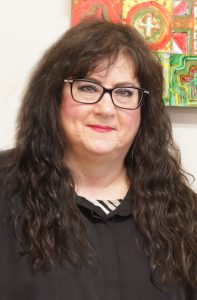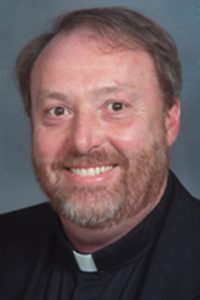Western Catholic high school does not advance, but door not closed completely

Findings of the Western Diocesan High School Feasibility Study, conducted over four months this spring by Meitler Consultants, were reported at the end of June and published earlier this month.
While there is a desire for a Catholic high school in the western part of the Diocese of Peoria, a feasibility study found that enrollment and funding were major areas of concern, and Bishop Daniel R. Jenky, CSC, has accepted a recommendation not to proceed at this time.
The door was not closed completely, however.

Dr. Sharon Weiss, superintendent, said the idea for a new Catholic high school in the western counties could be reconsidered if major donors come forward to support it.
“Bishop Jenky said we know that miracles can happen and if that would come in the form of major donors who would be willing to donate the money needed to begin the school, that would be something we would take into consideration,” said Dr. Sharon Weiss, superintendent of Catholic schools for the Diocese of Peoria.
The decision not to move forward was made unanimously by members of the Western Diocesan Catholic High School Study Committee, which included Weiss, Mike Buckley and Russ Courter of the diocesan Finance Office, and Debbie Benz of the diocesan Development Office. Also part of the group were the pastors of many of the faith communities involved: Msgr. Thomas Mack, pastor of Immaculate Conception Parish in Monmouth and St. Patrick Parish in Raritan, and Father William Miller, pastor of Corpus Christi, Immaculate Heart of Mary, and St. Patrick in Galesburg, and Sacred Heart in Abingdon.
In addition to Knox, Warren and Henderson counties, the study looked at McDonough County, where St. Paul Parish and School in Macomb are located.
Commissioned to do the feasibility study was Meitler Consultants of Wisconsin. The consulting firm had also worked with the Diocese of Peoria on “Renewing Our Mission: A Blueprint for Our Future,” a long-range planning study of diocesan schools published in 2009.
DEMOGRAPHICS NOT THERE
“What was gratifying is that it was done professionally,” Weiss told The Catholic Post. “We said if we’re going to do a study to discern if this is the time or it is not, we wanted it to be done well.”
It was designed to answer the question of viability and sustainability of a Catholic high school and included four months of on-site meetings with Alan Meitler, who facilitated it. Information was collected through online and written surveys, as well as focus group meetings and interviews with parents, parishioners and other stakeholders.
“We all understood that the high school was going to be small. We accepted that,” Weiss said, but noted that demographics of the area did not show that there would be a large group of students to pull from.
Enrollment for the first year would likely be 40 to 45 students in grades nine and 10, she said, with total enrollment projected to be 100 to 120 students in grades nine through 12.
Weiss said that funding is the other part of the formula that must work for sustainability of any Catholic school. In this case, the projected budget for the new school was between $900,000 and $1.1 million. Among the start-up costs to be considered were renovating or building a school, in addition to hiring teachers and arranging for bus transportation.
Funding sources include tuition, but there would also be a need for tuition assistance, she explained.
Fundraising and “third source funding” from donors interested in seeing Catholic education thrive would be important, too, since parishes cannot totally subsidize their schools, according to Weiss.
“THEY LISTENED”

Msgr. Thomas Mack said his parishioners in Warren and Henderson counties appreciated the opportunity to express their views.
“When there is the possibility of a new diocesan school, whether it’s elementary or secondary, you’re always hopeful and you think of the opportunity to educate and form more children in the faith,” Weiss told The Post. “Our Catholic schools are known for that, and they’re also tools of evangelization. We get excited about that.”
She admitted to some disappointment that the plan had to be shelved for now, saying, “There couldn’t be a better time in this culture to have this opportunity for our children.”
Msgr. Mack, who had proposed the idea of a Catholic high school in the western part of the diocese, said he feels some sadness, as do the people who urged him to ask the question. There’s no bitterness or anger, however.
“I really appreciate the bishop, especially, and the Office of Catholic Schools for hearing what the people out here were asking for. They listened to the people out here,” he said. “I thought the Meitler company did a very good survey. It was very professional. They had a lot of people respond.”
They also take hope from knowing that the issue isn’t closed.
There is some precedent for “miracles” in school funding. The last one took place in 2016, when St. Edward School in Chillicothe was set to close unless $600,000 could be raised for needed repairs. The community donated $400,000 in a matter of days, allowing the work to begin.
“Maybe someone will see the desire that’s out here and say, ‘Catholic education is important. Let’s help those folks out there in the western side of the diocese out,’” Msgr. Mack said.
—
Click here to see the full copy of the Report-WesternDiocesanHS-FINAL (1).





